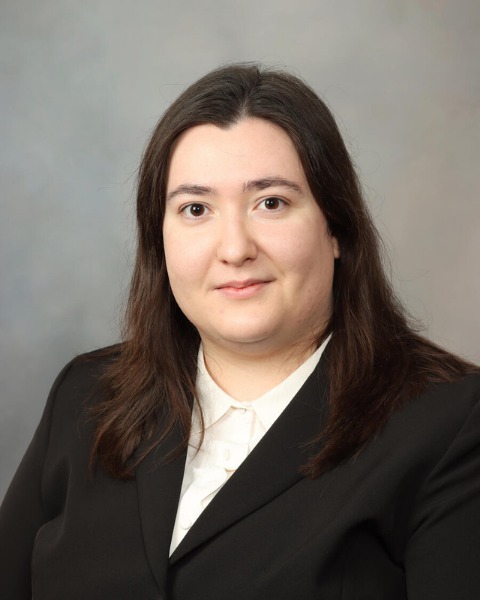Degenerative
Postoperative Wound-Related Complication Rates and Revision Rates After Spine Surgery in High-Risk Patients Receiving Prophylactic Muscle Flap Reconstruction
Friday, February 21, 2025

Asimina Dominari, MD
Postdoctoral Research Fellow
Mayo Clinic Rochester
Rochester, MN, US
Presenting Author(s)
Disclosure(s):
Asimina Dominari, MD: No financial relationships to disclose
Introduction: Wound-related complications, including surgical site infection (SSI), are a leading cause of postoperative morbidity after spine surgery. Muscle flap reconstruction (MFR) performed prophylactically (PMFR) has been proposed as an intraoperative strategy to decrease SSI and other wound-related complication in high-risk patients undergoing spine surgery.
Methods: A comprehensive literature search was performed to identify studies investigating the postoperative outcomes of patients undergoing spine surgery in whom PMFR was performed. Random-effects model meta-analysis was performed, with wound complications, such as SSI and wound dehiscence, and revisions being our primary endpoints.
Results: Six studies yielding 515 patients in whom PMFR was performed and 960 patients in whom regular closure in layers without PMFR was performed, were identified. Mean age at surgery was 59.4 ± 55.3 years in the PMFR group and 60 ± 18.6 years in the non-PMFR group. Female patients comprised 230 patients in the PMFR group and 405 patients in the non-PMFR group (OR: 1.02, 95%CI: 0.70-1.49, p=0.89). The mean operative time was significantly shorter in the non-PMFR group (MD: -95.05, 95%CI: -178.08 - -12.04, p=0.02). The mean length of stay was also significantly shorter in the non-PMFR group (MD: -3.06, 95%CI: -4.99 - -1.14, p < 0.01). Among patients who underwent PMFR, SSI was observed in 18 patients, while in the non-PMFR group SSI was noted in 51 patients (OR: 0.72, 95%CI: 0.31-1.67, p=0.36). Wound dehiscence was encountered in 11 patients in the PMFR group, and 22 patients in the non-PMFR group (OR: 0.54, 95%CI: 0.06 – 4.96, p=0.35). Revisions attributed to wound complications (p=0.23), as well as overall revisions (p=0.73) did not significantly differ between the PMFR and non-PMFR groups.
Conclusion : This meta-analysis of six studies comparing the perioperative outcomes of spine surgery among patients who underwent PMFR and patients who did not undergo PMFR showed no significant differences regarding the development of wound complications, including SSI and wound dehiscence, as well as revisions between the PMFR and non-PMFR groups. Our analysis shows that, considering the increased invasiveness of MFR, the benefits of performing this procedure prophylactically might be worth revisiting.

.jpg)